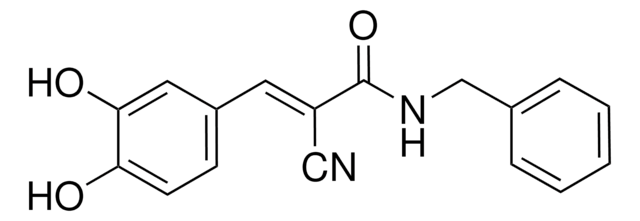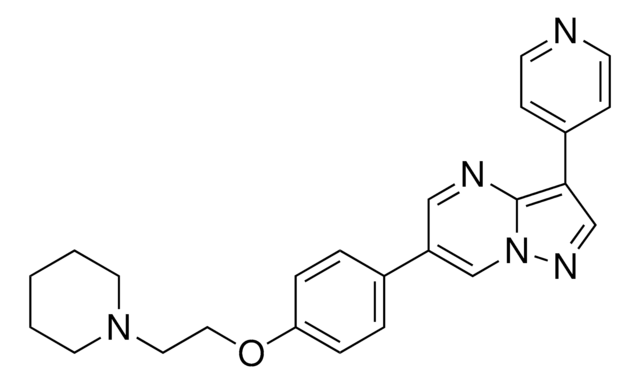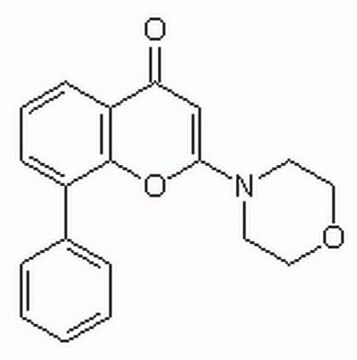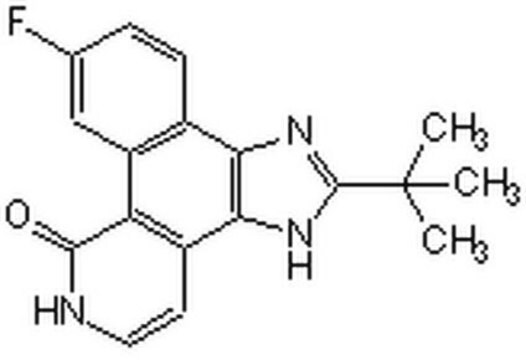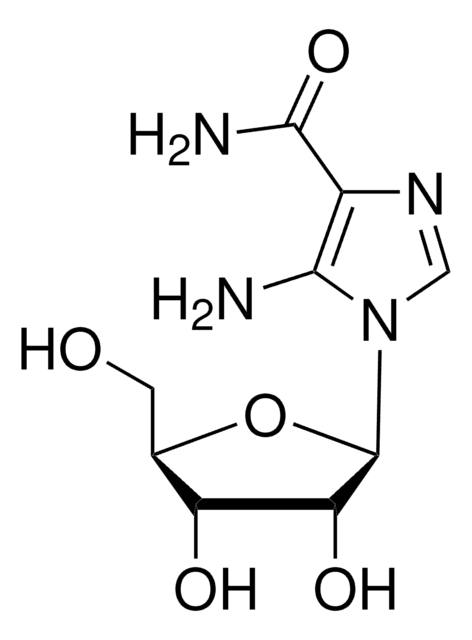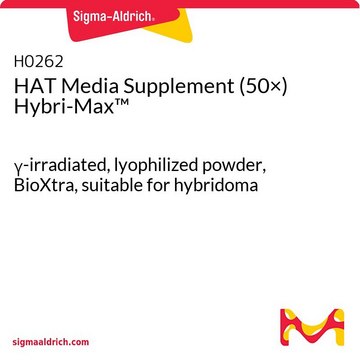658401
AG 490
A cell-permeable, reversible, substrate competitive, and potent inhibitor of epidermal growth factor receptor kinase autophosphorylation (IC₅₀ = 100 nM).
Synonym(s):
AG 490, α-Cyano-(3,4-dihydroxy)-N-benzylcinnamide, Tyrphostin B42, ( E)- N-benzyl-2-cyano-3-(3,4-dihydroxyphenyl)acrylamide, JAK1 Inhibitor II, JAK2 Inhibitor VI, JAK3 Inhibitor XI, α-Cyano-(3,4-dihydroxy)-N-benzylcinnamide, Tyrphostin B42, (E)-N-benzyl-2-cyano-3-(3,4-dihydroxyphenyl)acrylamide, JAK1 Inhibitor II, JAK2 Inhibitor VI, JAK3 Inhibitor XI
About This Item
Recommended Products
Quality Level
Assay
≥98% (HPLC)
form
solid
manufacturer/tradename
Calbiochem®
storage condition
OK to freeze
protect from light
color
yellow
solubility
DMSO: 100 mg/mL
shipped in
ambient
storage temp.
−20°C
InChI
1S/C17H14N2O3/c18-10-14(8-13-6-7-15(20)16(21)9-13)17(22)19-11-12-4-2-1-3-5-12/h1-9,20-21H,11H2,(H,19,22)/b14-8+
InChI key
TUCIOBMMDDOEMM-RIYZIHGNSA-N
General description
Biochem/physiol Actions
epidermal growth factor receptor kinase autophosphorylation
Warning
Reconstitution
Other Notes
Eriksen, K.W., et al. 2001. Leukemia15, 787.
Kirken, R.A., et al. 1999. Leukoc. Biol.65, 891.
Nielsen, M., et al. 1997. Proc. Natl. Acad. Sci. USA 94, 6764.
Meydan, N., et al. 1996. Nature 379, 645.
Gazit, A., et al. 1991. J. Med. Chem.34, 1896.
Levitzki, A. 1990. Biochem. Pharmacol.40, 913.
Legal Information
Storage Class Code
11 - Combustible Solids
WGK
WGK 3
Certificates of Analysis (COA)
Search for Certificates of Analysis (COA) by entering the products Lot/Batch Number. Lot and Batch Numbers can be found on a product’s label following the words ‘Lot’ or ‘Batch’.
Already Own This Product?
Find documentation for the products that you have recently purchased in the Document Library.
Customers Also Viewed
Our team of scientists has experience in all areas of research including Life Science, Material Science, Chemical Synthesis, Chromatography, Analytical and many others.
Contact Technical Service